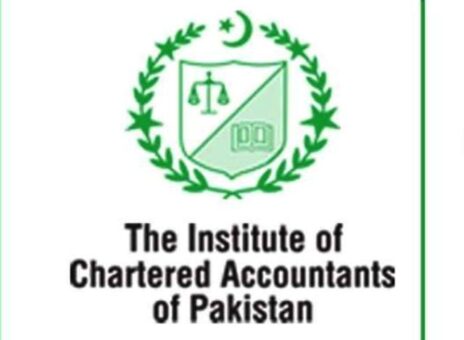KARACHI: Federal Board of Revenue (FBR) has been advised to relax export conditions to Afghanistan in order to improve exports and inflows of foreign exchange.
Institute of Chartered Accountants of Pakistan (ICAP) in its tax proposals for budget 2019/2020 said that as per SRO 190(I)/2002 dated April 2, 2002, zero rating on Exports under section 4 of the Sales Tax Act is not applicable in respect of supply of certain categories of goods, exported by air or via land route to Afghanistan and through Afghanistan to Central Asian Republics.
Categories of goods specified in SRO 190(I)/2002 have been reproduced below for ready reference:
“(a) manufactured in the Export Processing Zones or in manufacturing bonds;
(b) exported, other than against irrevocable letters of credit, or advance payment, in convertible foreign currency;
(c) exported without fulfilling the conditions prescribed in paragraphs 8, 12B, entry 9 of the Schedule I and Schedule IV to the Export Policy and Procedure Order, 2000; and
(d) specified in the list below, namely: –
(i) cigar, cheroots, cigarillos, and cigarettes of tobacco or of tobacco substitutes;
(ii) dyes and chemicals;
(iii) yarn all types;
(iv) PVC and PMC materials;
(v) polyester metalized film;
(vi) ball bearings;
(vii) vegetable ghee and cooking oil (if exported from Export Processing Zones or manufacturing bonds); and
(viii) all petroleum products whether imported or produced locally (unless there is a Government to Government contract done through oil marketing companies only).”
The ICAP said that similar restrictions, on exports to Afghanistan and through Afghanistan to Central Asian Republic as specified in clause (a), (b) and (d) above are also part of the Export Policy Order, 2016 issued vide SRO 344(I)/2016 dated April 18, 2016.
The ICAP said that goods manufactured in manufacturing bonds are subjected to strict scrutiny by the Customs authorities from import until the final exports stage in accordance with the procedure given in Customs SRO 450(I)/2001 dated June 18, 2001.
Therefore, goods manufactured in the manufacturing bonds are less prone to be used for unscrupulous activities.
The ICAP further noted it understand that restriction on zero rating facility on all items, as per SRO 190(I)/2002 dated April 2, 2002 and SRO 344(I)/2016 dated April 18, 2016, should be revisited, in order to increase overall exports and to prevent other countries like India to capture the market in Afghanistan.
Considering such a situation, the ICAP recommended the following restrictions:
(i) restriction on exports via manufacturing bond be removed and only conditions relating to exports against irrevocable letters of credit, or advance payment, in convertible foreign currency should remain intact owing to the fact that goods manufactured through the manufacturing bond facility are subject to strict scrutiny of the Customs authority;
(ii) for export, other than through manufacturing bond, of goods specified in clause “(d)” of SRO 190(I)/2002 as well as items specified in Schedule III of the Exports Policy Order, 2016, exporters should be made liable to comply with the following conditions:
(a) export transactions must be executed against irrevocable letters of credit, or advance payment, in convertible foreign currency;
(b) zero rating be allowed only in case of exports by Manufacturers from Pakistan to manufacturers in Afghanistan;
(c) where the proof that goods exported have reached Afghanistan has been verified on the basis of a copy of import clearance documents by Afghan Customs Authorities; and
(d) exports should only be routed through authorized export land routes i.e. Torkham, Chaman, Ghulam Khan and Qamar Uddin Karez (when it becomes operational).
It said that restrictions under SRO 190(I)/2002 and SRO 344(I)/2016 were imposed to prevent misuse of zero rating benefits by traders by exporting goods to Afghanistan and thereafter re-importing the same via unlawful means.
The institute believed that a blanket restriction, on all goods manufactured in the manufacturing bond as well as on specific items, instead of bringing the desired results, has dented our Exports market and has also helped the other countries like India, to increase their exports to Afghanistan, which otherwise would have been supplied from Pakistan.
“These suggestions, if implemented in true spirit, will not only increase the overall Exports and Foreign Exchange reserves but will also encourage documented sectors thereby resulting in a major barrier for operations of undocumented sector,” the ICAP said.
